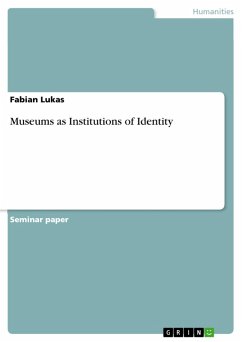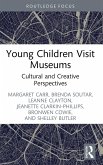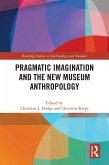Seminar paper from the year 2015 in the subject Sociology - Culture, Technology, Nations, grade: 1,0, , language: English, abstract: Museums are cultural, educational and civic centers of communities. In the past museums served only a small group of people. Furthermore a lot of the museums in the past saw their mission in lecturing and educating their visitors with the exhibition of objects. But the role of museums has changed in the last years. Due to demographic changes in the societies the museums serve, they are now in a situation where they have to compete with other institutions like zoos or cinemas. Potential visitors can choose nowadays how to spend their leisure time. In order to further guarantee financial income a lot of museums have adapted strategies of the areas of business and economy. The developed marketing strategies and frameworks to measure success and accountability. But even more important are the changes museums made and are still making regarding to their mission and their interaction with the surrounding community. Museums nowadays are moving away from the old habit of teaching their visitor in a static and lecturing way. Instead they focus on aspects like participation and the involvement of their visitors. Additionally they began to outreach for other institutions like schools or universities to provide a worthy educational experience for both sides. The present museums must reflect the voices, needs and interests of the communities they serve, in order to survive. Therefore museums are evolving away from being isolated islands of teaching to places of gathering and exchange. They become forums that not just display objects but also invite discussions, evoke concerns and foster ideas like critical thinking within their community. It is obvious that the way how museums interact with their community has become broader and not necessarily easier to articulate. But what are communities? Usually a community is a group of people that shares a physical space like a room, a city or a country. Furthermore a community can also share certain traits, characteristics or ideals. Communities can interact which each other and establish a certain social identity. It becomes visible that communities are not closed entities, they are open constructs that are connected with other communities in various ways.
Dieser Download kann aus rechtlichen Gründen nur mit Rechnungsadresse in A, B, BG, CY, CZ, D, DK, EW, E, FIN, F, GR, HR, H, IRL, I, LT, L, LR, M, NL, PL, P, R, S, SLO, SK ausgeliefert werden.









